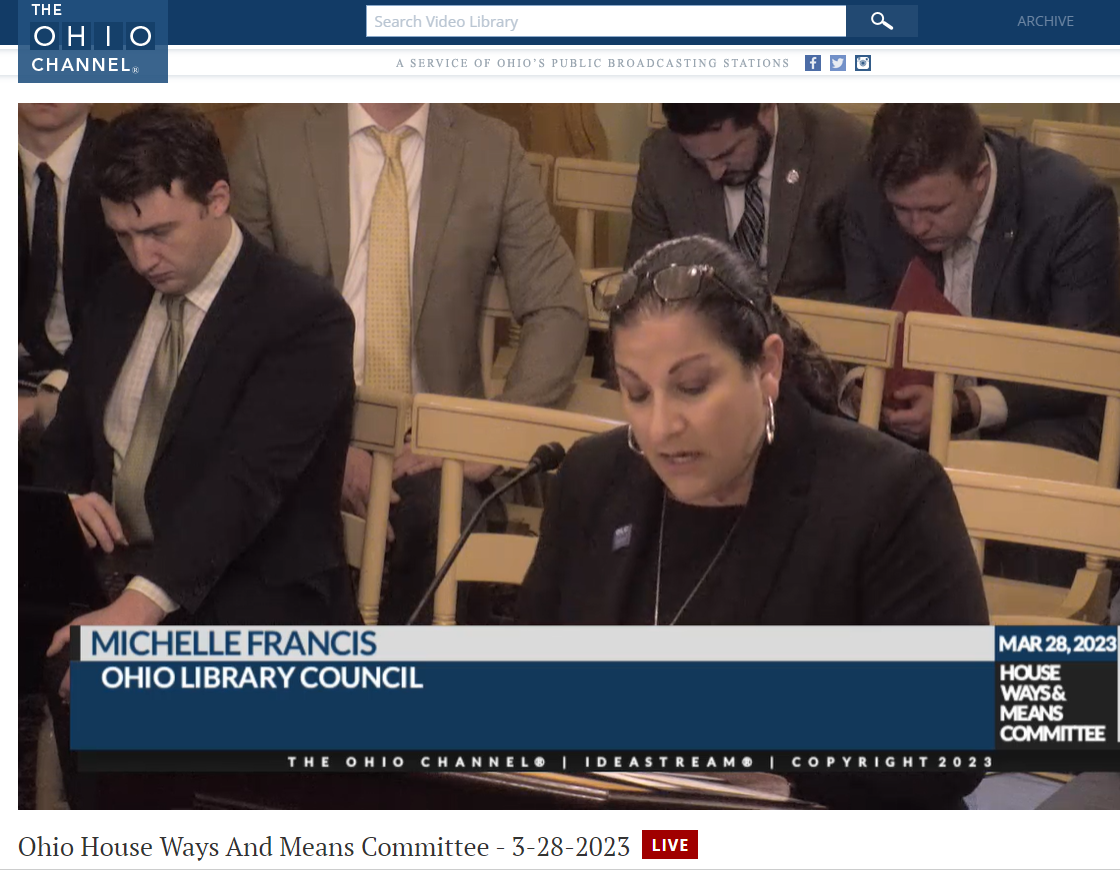Ohio House Bill 1 Testimony

OLC’s Executive Director Michelle Francis testifies in opposition to HB 1, in front of the Ohio House Ways and Means Committee.
House Bill (HB) 1 Opponent Testimony before the House Ways and Means Committee
(3/28/23)
Transcript of Ohio Library Council testimony
Michelle Francis, Executive Director
Ohio Channel video recording [OLC testimony begins at the 45:23 mark]
Additional Opponent Testimony from public libraries:
- Akron-Summit County Public Library
- Alger Public Library
- Cincinnati and Hamilton County Public Library
- Cleveland Heights-University Heights Public Library
- Columbus Metropolitan Library
- Cuyahoga County Public Library
- Dayton Metro Library
- Huron County Community Library
- Portage County District Library
- Westerville Public Library
- Wornstaff Public Library
Additional information on HB 1
Previous testimony:
The House Ways and Means Committee held its first hearing on the legislation on Feb. 28. The bill’s sponsor, Rep. Adam Mathews (R-Lebanon) provided testimony in support of the multiple tax changes being proposed. A video recording of the hearing is available on the Ohio Channel (testimony begins at the 11 minute mark). The committee has also heard proponent testimony from the Americans for Tax Reform, Ross County Auditor-elect Jeff Lehner, Lebanon Mayor Mark Messer, and the Americans for Prosperity.
Legislative Services Commission
HB 1 Fiscal Note and Local Impact Statement
The Legislative Services Commission has released its House Bill (HB) 1 Fiscal Note and Local Impact Statement.
It’s important to note that the LSC Fiscal Note is basing the impact of the proposed state income tax changes on the current rate of the Public Library Fund at 1.66%. We know that this estimate will be higher since we are currently funded in temporary law at 1.7%. With that said, LSC is estimating the PLF will be cut by $43 million in FY 2024 and $31 million in FY 2025. Additionally, with the proposed reduction of property tax assessment rates, local governments are estimated to lose $239 million in Tax Year (TY) 2024. In TY 2025 and thereafter, assessment rates would adjust downward, resulting in additional losses in FY 2026 and subsequent years. Out of that $239 million, we don’t yet know how much of it directly impacts public libraries.


